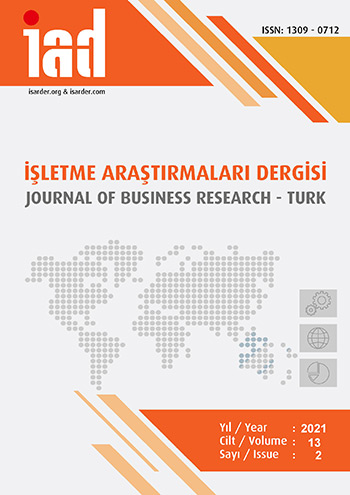Organizational Adoption of Smart Tourism Technologies in Accommodation Enterprises
DOI:
https://doi.org/10.20491/isarder.2021.1203Keywords:
Smart Tourism Technologies, Technology-Organization- Environment (TOE), FrameworkAbstract
Purpose – The purpose of this study is to contribute to the relevant knowledge accumulation by revealing the factors that affect the organizational adoption of smart tourism technologies in accommodation enterprises.
Design/methodology/approach – Structured interviews were carried out, which is one of the mostly used qualitative data gathering techniques. Primary data were collected through either face-to-face interviews or e-mails held in May-June 2020 with nine managers of accommodation enterprises operating in Antalya and Cappadocia Region which offer different tourism products to different tourist profiles. The data were subjected to inductive content analysis, participants’ responses were tabulated, and direct quotations were included for each interview question.
Findings – As the data analysis reveals, the perceived benefit, compatibility, top management support, firm size, technology competence, customer needs and competitive pressure factors positively affect the organizational adoption of smart tourism technologies in the accommodation enterprises while the complexity factor affects negatively. Moreover, it was stated that the legal regulations as being environmental factor had also positive implications.
Discussion – Although there are studies on the organizational adoption of new technologies in the tourism sector (Wang & Qualls, 2007; Fux & Myrach, 2009; Ozturk et al., 2012; Leung et al., 2015; Nurhadi & Purnomo, 2018), no study available on organizational adoption of smart tourism technologies in accommodation enterprises. The compatibility, firm size, technology competence, customer needs and competitive pressure factors affect positively the organizational adoption of smart tourism technologies in accommodation enterprises. These results are supported by the studies of Ozturk et al. (2012), Wang et al. (2016), Lin (2017), and Yan Xin et al. (2014). In line with these findings, suggestions were made to the academia, practitioners and future studies.
Downloads
Published
How to Cite
Issue
Section
License

This work is licensed under a Creative Commons Attribution-NoDerivatives 4.0 International License.





